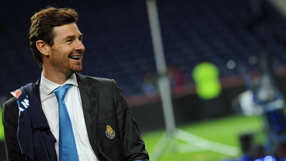Europa success signals rise of Portugal coaches
LISBON - Portugal's feat of getting two clubs into a European final for the first time signals the rise of a new generation of coaches who have made the most of squads based heavily on South American talent.

Andre Villas Boas' rampant Porto swept past Villarreal in the Europa League semi-finals on Thursday while Domingos' Braga saw off compatriots Benfica to book a place in their maiden European final, to be played in Dublin on May 18.
"The unprecedented presence of two Portuguese teams in a European final is a historical mark for Portuguese sport and proves the strength and quality of our football," said Gilberto Madail, head of the Portuguese Football Federation.
Much of that strength comes from the managers, with young coaches like Villas Boas and Domingos leading a promising generation, which includes Portugal coach Paulo Bento, into the spotlight, with Jose Mourinho as the obvious prototype.
Like the Real Madrid coach, Villas Boas and Domingos have shown the ability to create highly organised teams and instil a fighting spirit in their players through strong man-management.
PORTO LINKS
Villas Boas, 33, worked under Mourinho at Porto, Chelsea amd Inter Milan before returning to the Portuguese club this season with his team winning the title without suffering a defeat.
The 42-year-old Domingos also has strong ties to Porto, where he scored over 100 goals in a long career as a lethal striker before moving into coaching to take Braga to their first runners-up spot in the league last season.
Get FourFourTwo Newsletter
The best features, fun and footballing quizzes, straight to your inbox every week.
"(The final) will be a crazy affair, with huge emotions at stake," Villas Boas said.
Both coaches have relied heavily on South Americans, taking advantage of the fact that Portugal is a main point of entry for that continent's players coming into Europe.
Colombian striker Radamel Falcao has shone for Porto alongside Brazil's Hulk, whose compatriot Vandinho scored the away goal that took Braga into the final.
From the 33 players that started for the three Portuguese teams in the second leg matches, 20 were South Americans.
Many of them will eye the Dublin final as a golden chance to emulate players like Real Madrid's Argentine winger Angel di Maria and Chelsea's Brazil centre back David Luiz by earning big-money moves from Portugal to Europe's bigger leagues.
